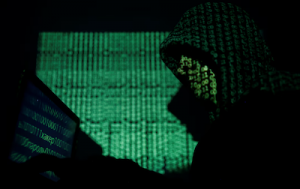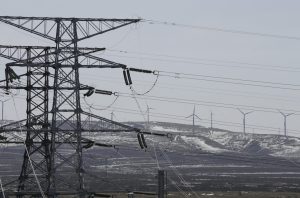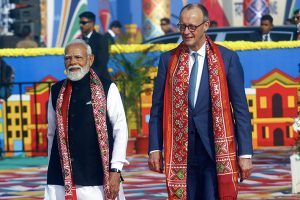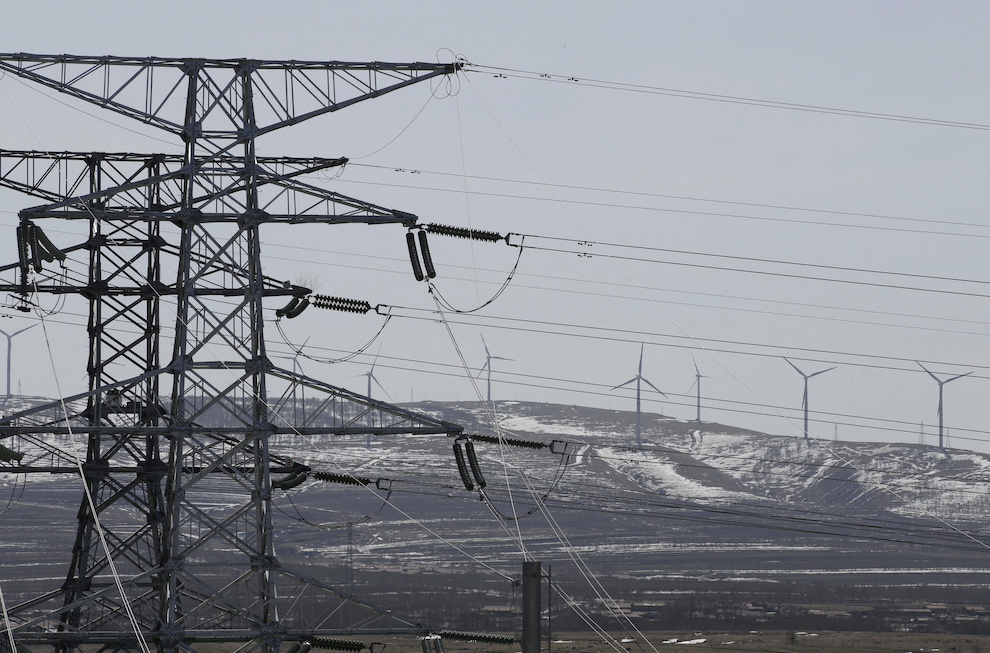Leaders of the global auto industry will be closely watching whether US President Trump’s phone call with his Chinese counterpart Xi Jinping makes any difference to China’s clampdown on exports of rare earth magnets.
Early reports on the call on Thursday suggest Trump won limited relief and that Beijing will retain the export controls it imposed in April on these critical minerals, with perhaps just a greater number of staff to check export applications from suppliers and carmakers around the world.
Reuters quoted industry executives and analysts as saying that while China is showing signs of approving more exports of the key elements, it will not dismantle its new system.
ALSO SEE: Trump Call to Xi Eases Fear US-China Trade Deal May Unravel
Beijing’s export licence system gives it unprecedented insight into supplier chokepoints in areas ranging from motors for electric vehicles to flight-control systems for guided missiles.
Several European auto suppliers shut down production lines this week after running out of supplies. While China’s April curbs coincided with a broader package of retaliation against Washington’s tariffs, the measures apply globally.
“Beijing has a degree of plausible deniability – no one can prove China is doing this on purpose,” said Noah Barkin, senior adviser at Rhodium Group, a China-focused US thinktank.
“But the rate of approvals is a pretty clear signal that China is sending a message, exerting pressure to prevent trade negotiations with the US leading to additional technology control.”
Licence system reveals supply networks
Even if the pace of export approvals quickens as Trump suggested, the new system gives Beijing unprecedented glimpses of how companies in a supply chain deploy the rare earths it processes, European and US executives have warned.
Other governments are denied that insight because of the complexity of supply chain operations. For example, hundreds of Japanese suppliers are believed to need China to approve export licences for rare earth magnets in coming weeks to avert production disruptions, said a person who has lobbied on their behalf with Beijing.
“It’s sharpening China’s scalpel,” said a US-based executive at a company seeking to piece together an alternative supply chain who sought anonymity.
“It’s not a way to oversee the export of magnets, but a way to gain influence and advantage over America.”
Fears that China could weaponise its global supply chain strength first emerged after its temporary ban of rare earth exports to Japan in 2010, following a territorial dispute.
As early as 1992, former Chinese leader Deng Xiaoping was quoted as saying, “The Middle East has oil, China has rare earths.”
Beijing’s landmark 2020 Export Control Law broadened curbs to cover any items affecting national security, from critical goods and materials to technology and data.
Analysts face a hard task in tracking the pace of China’s approvals following the Trump-Xi call.
“It’s virtually impossible to know what percentage of requests for non-military end users get approved because the data is not public and companies don’t want to publicly confirm either way,” said Cory Combs, a critical minerals analyst with Trivium, a policy consultancy focused on China.
Small team issuing permits
A small team in China’s Ministry of Commerce, in a grey building just east of Tiananmen Square in Beijing, now appears to have a strong grip on the fate of the global auto industry, as they decide on the export permits for rare earth magnets.
China holds a near-monopoly on rare earth magnets – a crucial component in electric vehicle motors, wind turbines and even F-35 fighter jets – and it added them to an export control list in mid-April as part of its trade war with the United States, forcing all exporters to apply to Beijing for licences.
The Bureau of Industrial Security and Import and Export Control, part of China’s Ministry of Commerce, reviews export permits for rare earth magnets.
While dozens of licences have been issued since late April, executives, lobbyists and diplomats say they are only a fraction of the applications that have flooded in from automakers, semiconductor companies and aerospace firms around the world since the tougher export controls were introduced.
Washington said delays in issuing those export licences showed China was reneging on commitments made during trade talks in Geneva last month and it retaliated with export curbs on plane engine parts and other equipment.
That led to President Trump and Xi’s talks by phone on Thursday as the escalating dispute over China’s rare earth stranglehold threatened to derail the fragile trade 90-day truce agreed by the superpowers.
When the new rare earth magnet measures came in, the export control bureau had just 30 staff, but this has since been doubled to around 60, according to two sources who were briefed on a meeting between the ministry and Chinese and European semiconductor firms last week, Reuters said.
Shortly after Thursday’s call, Trump posted on Truth Social that “there should no longer be any questions respecting the complexity of Rare Earth products,” without elaborating on what had been agreed.
A state media report on Xinhua did not specifically mention rare earths, but said Beijing “implemented the (Geneva) agreement in a serious and earnest manner.”
Huge impact from clampdown, EU says
“We appreciate that MOFCOM has increased its resources to address demand and they’re working hard and long hours on these issues,” said Adam Dunnett, secretary general of the European Chamber of Commerce in China, referring to the ministry.
“But the reality is this is having a huge impact on a wide variety of sectors. It’s something that could have been better planned and rolled out,” he said.
According to personnel records posted to the Ministry of Commerce’s website in June 2024, there are only three senior officials within the bureau who can approve the export permits.
The ministry’s website lists the export licence bureau’s office hours as: Weekdays, 8:30-11:30am, 14:00-17:00pm.
Reuters was unable to determine current staffing levels or whether more officials are now able to approve applications.
A ‘complex and time-consuming’ chokepoint
The global alarm over shortages underscores the enormous leverage China has acquired through its near-monopoly on rare earth production. It also reveals a complex bureaucratic process that has gone from checkpoint to chokepoint.
“The process for our suppliers to apply for export licences for various rare earths … since April, is complex and time-consuming, partly due to the need to collect and provide a lot of information,” a spokesperson for Bosch, the German engineering and technology multinational, said last month.
A Chinese-language guide to the process published by the Ministry in late March runs to almost 14,000 characters.
European auto suppliers alone have filed hundreds of requests since early April, with only about a quarter granted. These applications can range from dozens to hundreds of pages, according to sources who have filed requests or been briefed about them.
Public Ministry of Commerce guidelines require information including technical product descriptions, signed contracts. Descriptions of production facilities and photos of products are also encouraged.
China’s stated aim is to ensure dual-use items don’t end up in military equipment, but officials are often overly cautious even though many applications clearly state commercial use, Dunnett said.
“Another concern we have heard from some companies is that they are being asked for sensitive and excessive information that is part of their intellectual property which has led to delays in their applications,” Dunnett added.
While applications are meant to be processed in 45 working days, the ministry says applications related to national security will take longer, without defining how long.
‘Retaliation for US chip curbs’
Cory Combs, head of critical mineral and supply chain research at Trivium China, a policy research group, said it was not clear whether the delays were due to bureaucratic inertia or intentional weaponisation.
“We do expect these applications to US end-users to be reviewed on par with other countries and approved whenever they’re not for military use,” he said. “The issue here is that, is it quick enough for the Trump administration to believe that Beijing has not reneged on the Geneva agreement?”
Some US industry figures believe that the bureaucratic backlog is a “strategic excuse”.
“China can staff up as fast as they want, if they wanted to,” said a source from the US rare earths industry who declined to be named for sensitivity reasons.
In public, Chinese officials have said the export controls apply to all countries. Foreign ministry spokesperson Lin Jian said on May 30 that the rare earth export controls are “non-discriminatory and not targeted at any specific country”.
During the Geneva talks, however, China privately admitted that the rare earth export controls qualified as non-tariff counter-measures, according to a source briefed on the talks.
Rare earths remain a core part of ongoing US-China discussions, the person said.
Chinese scholars openly admit that the rare earth export controls are retaliation for US chip curbs.
“It’s a short-term form of leverage which doesn’t hurt China, as the rare earths in question have relatively low monetary value,” said Zhu Junwei, an international relations scholar at the Grandview Institution, a Chinese think-tank.
The rare-earths export controls are expected to be the focus of new talks when US and Chinese trade officials meet again in the near future.
- Reuters with additional input and editing by Jim Pollard
NOTE: Further text was added to the top half of this report and the headline changed on June 6, 2025.
ALSO SEE:
China Sets up Tracking System to Trace Its Rare Earth Magnets
Cloud on US-China Ties: Trump Says Xi ‘Hard to Make a Deal With’
Carmakers Stressed by China’s Curbs on Critical Mineral Exports
China Denies Trump Claim, Says It Was US That Broke Trade Deal
China ‘Totally Violated’ Tariffs Agreement With US, Trump Says
Trump’s Tariffs Reinstated as Appeals Court Pauses Trade Ruling
US Blocks Chip Design Software, Chemical Shipments to China
Beijing Says Latest US Chip Warning Puts Trade Truce at Risk
Mass Layoffs Avoided in China, But Export Sector Badly Shaken
Asian Markets Rise After US, China Agree to Cut Majority of Tariffs
China Follows US Playbook in Rare Earth Crackdown; Tesla Hit
China Halts Rare Earth Exports, Warns US on Deep-Sea Metals ‘Plan’
























